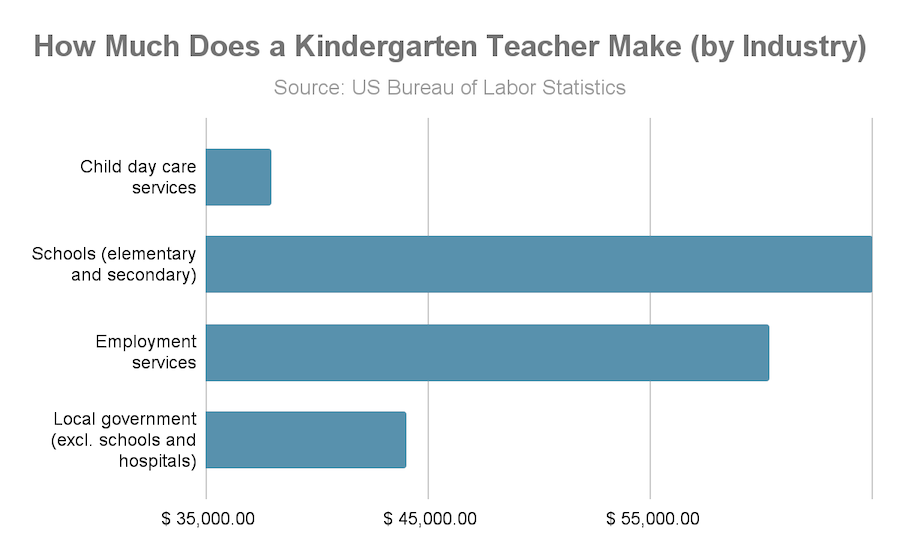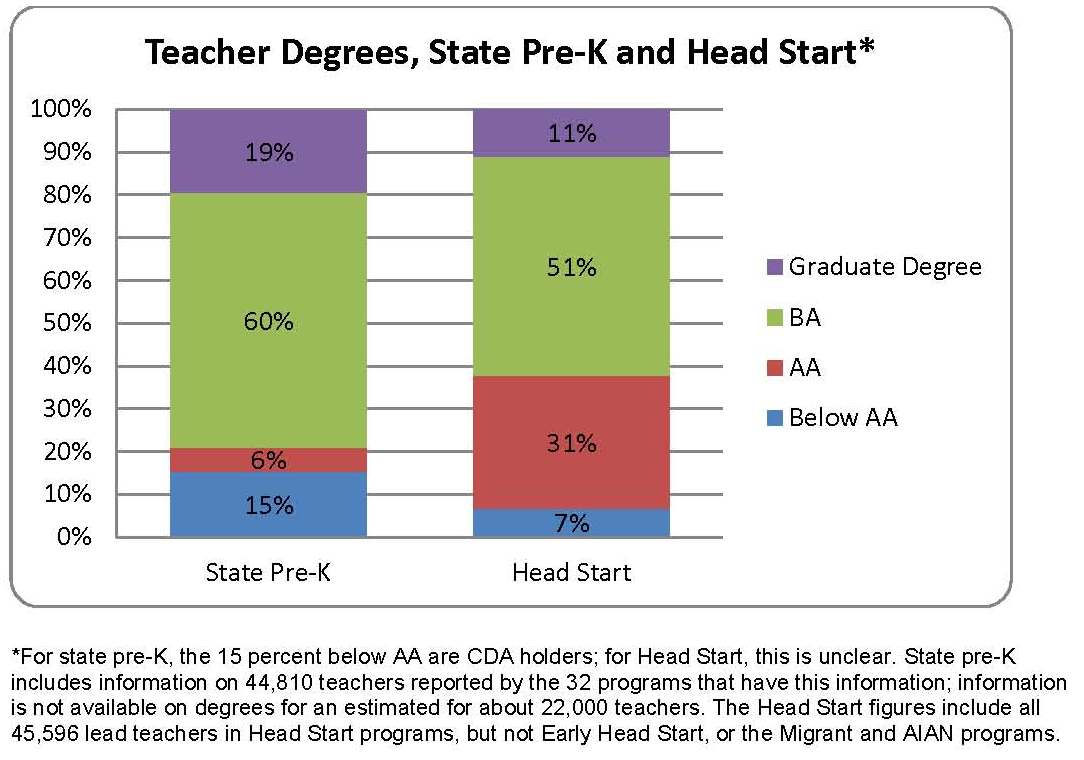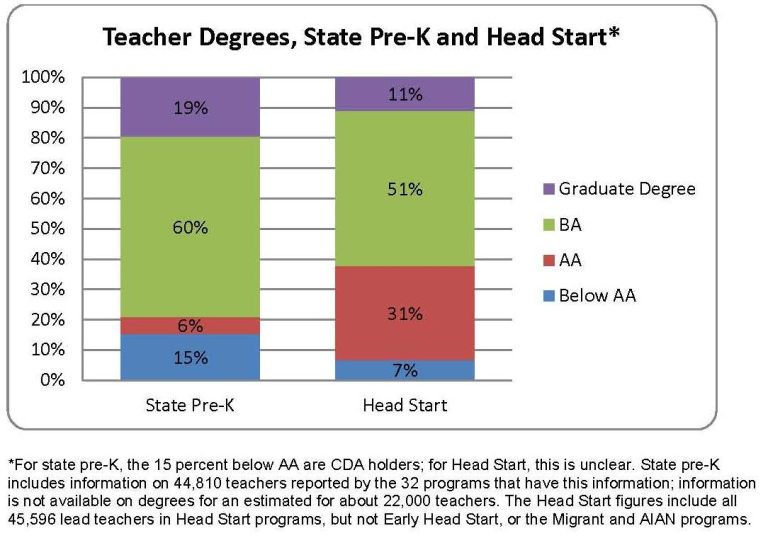How Much Do Early Childhood Education Teachers Make: Unveiling Salary Insights

Early childhood education teachers earn an average salary of around $30,000 to $50,000 per year. This varies based on location and experience.
Early childhood education teachers play a crucial role in shaping the minds of young children and laying the foundation for their future academic success. The demand for qualified early childhood educators is on the rise, creating promising job prospects in this field.
As an early childhood education teacher, you have the opportunity to make a positive impact on the lives of young learners and contribute to their overall development. In addition to competitive salaries, many early childhood education positions offer benefits such as healthcare and retirement plans. If you have a passion for working with young children and are dedicated to their growth and learning, a career in early childhood education can be rewarding both personally and professionally.
Factors Affecting Early Childhood Education Teachers’ Salaries
When considering a career in early childhood education, it’s important to understand the factors that can impact teacher salaries. Early childhood education teachers’ salaries can be influenced by several key factors, including their level of education and certification, years of experience, and location and type of employer.
Level Of Education And Certification
Early childhood education teachers with higher levels of education and specialized certifications typically have the potential to earn higher salaries. Attaining a bachelor’s degree in early childhood education or a related field, as well as obtaining relevant certifications such as Child Development Associate (CDA) or a state teaching license, can significantly impact earning potential.
Years Of Experience
Experience plays a vital role in determining early childhood education teachers’ salaries. With each year of experience, teachers may become eligible for higher pay and additional benefits. Teachers who have been in the field for several years and have demonstrated a track record of success and commitment may command higher salaries than those who are newer to the profession.
Location And Type Of Employer
The location and type of employer can also greatly influence early childhood education teachers’ salaries. Salaries can vary based on the cost of living in a particular area, with teachers in urban or high-demand areas often earning higher wages. Additionally, teachers working in public schools, private schools, or childcare centers may experience differences in salary and benefits based on the employer’s budget and resources.

Credit: nieer.wordpress.com
Average Salaries Of Early Childhood Education Teachers
Early childhood education teachers play a vital role in shaping the minds of young children and preparing them for future academic success. Understanding the average salaries of early childhood education teachers is important for both educators entering the field and parents seeking quality care and education for their children.
National Average Salary
The national average salary for early childhood education teachers is $29,780 per year, according to the Bureau of Labor Statistics. This figure represents the median wage, indicating that half of all teachers in this field earn more than this amount, while the other half earn less.
State-by-state Salary Comparison
When examining the average salaries of early childhood education teachers on a state-by-state basis, there are noticeable variations. For example, in California, the average annual salary is $34,040, while in Texas, it is $27,210. This discrepancy highlights the impact of location on salary potential and the importance of considering regional differences when pursuing a career in early childhood education.
Benefits And Perks Of Early Childhood Education Teaching
When it comes to early childhood education teaching, the benefits and perks extend beyond just the monetary compensation. Early childhood educators enjoy a range of benefits that contribute to their overall well-being and job satisfaction. From health and retirement benefits to paid time off and professional development opportunities, the perks of this profession are designed to support teachers in their crucial role of shaping young minds.
Health And Retirement Benefits
Early childhood education teachers are often provided with comprehensive health insurance plans, including medical, dental, and vision coverage. This ensures that they can access the healthcare services they need to stay healthy and focused on their work. Additionally, many institutions offer retirement plans, such as 401(k) or pension schemes, to support teachers in planning for their future.
Paid Time Off And Work-life Balance
Early childhood educators typically receive paid time off, including vacation days, sick leave, and personal days. This allows them to recharge and take care of personal matters without worrying about lost income. Moreover, the profession often offers a favorable work-life balance, with predictable schedules and flexibility to accommodate family needs.
Professional Development Opportunities
In addition to competitive salaries, early childhood education teachers have access to professional development opportunities. These may include workshops, conferences, and continuing education programs aimed at enhancing their teaching skills and keeping them updated with the latest trends in early childhood education.
Challenges And Opportunities In Early Childhood Education Teaching
Early childhood education teaching comes with its own set of challenges and opportunities. From low wages and lack of funding to the high demand for qualified teachers and potential advancement opportunities, the field presents a unique landscape for those pursuing a career in early childhood education.
Low Wages And Lack Of Funding
Early childhood education teachers often face the challenge of low wages and insufficient funding for resources and programs. This can impact the quality of education provided and the overall well-being of teachers.
Demand For Early Childhood Education Teachers
The demand for early childhood education teachers is consistently high. As more parents recognize the importance of early childhood education, the need for qualified teachers continues to grow.
Advancement Opportunities
Despite the challenges, there are opportunities for advancement in early childhood education teaching. Teachers can pursue higher education, take on leadership roles, or specialize in areas such as special education or curriculum development.
Negotiating Early Childhood Education Teacher Salaries
Early childhood education teacher salaries can vary based on factors like experience, location, and qualifications. Negotiating for fair compensation is essential to ensure teachers are adequately compensated for their important work in shaping young minds. Researching industry standards and advocating for competitive pay is crucial in this field.
Effective Negotiating Strategies
When it comes to negotiating salaries, it’s important to have a strategy in place. As an early childhood education teacher, you can use the following strategies to negotiate a better salary:- Highlight your qualifications and experience.
- Research the average salary for similar positions in your area.
- Focus on the value you bring to the organization.
- Be confident and assertive.
- Be willing to compromise on non-salary benefits.
Resources For Salary Research And Comparison
To negotiate effectively, it’s important to have an understanding of the current market rates for early childhood education teacher salaries. Here are some resources you can use for salary research and comparison:| Resource | Description |
|---|---|
| Salary.com | Provides salary data for specific job titles and locations. |
| Glassdoor | Offers salary information, company reviews, and interview insights. |
| Bureau of Labor Statistics | Provides data on employment, wages, and industries. |

Credit: nieer.org

Credit: www.hawaiibusiness.com
Frequently Asked Questions
What Is The Highest Paying Job In Early Childhood Education?
The highest paying job in early childhood education is a Childcare Center Director. They oversee operations and staff.
What Is The Highest Paid Preschool Teacher?
The highest paid preschool teachers can earn salaries of around $55,000 to $60,000 per year. This can vary depending on location and experience.
Is It Hard To Be An Early Childhood Educator?
Being an Early Childhood Educator requires dedication, patience, and a passion for working with young children. It can be challenging but rewarding.
How Much Do Elementary Teachers Make In Texas?
Elementary teachers in Texas typically earn an average salary of around $55,000 per year.
Conclusion
Early childhood education teachers play a crucial role in shaping the future generation. While the salary varies, it’s essential to recognize the value they bring. Understanding the factors influencing their income is vital for aspiring teachers. By prioritizing fair compensation, we can ensure quality education for our children.
Lorem Ipsum is simply dummy text of the printing and typesetting industry. Lorem Ipsum has been the industry’s standard dummy text ever since the 1500s, when an unknown printer took a galley of type and scrambled it to make a type specimen book.






